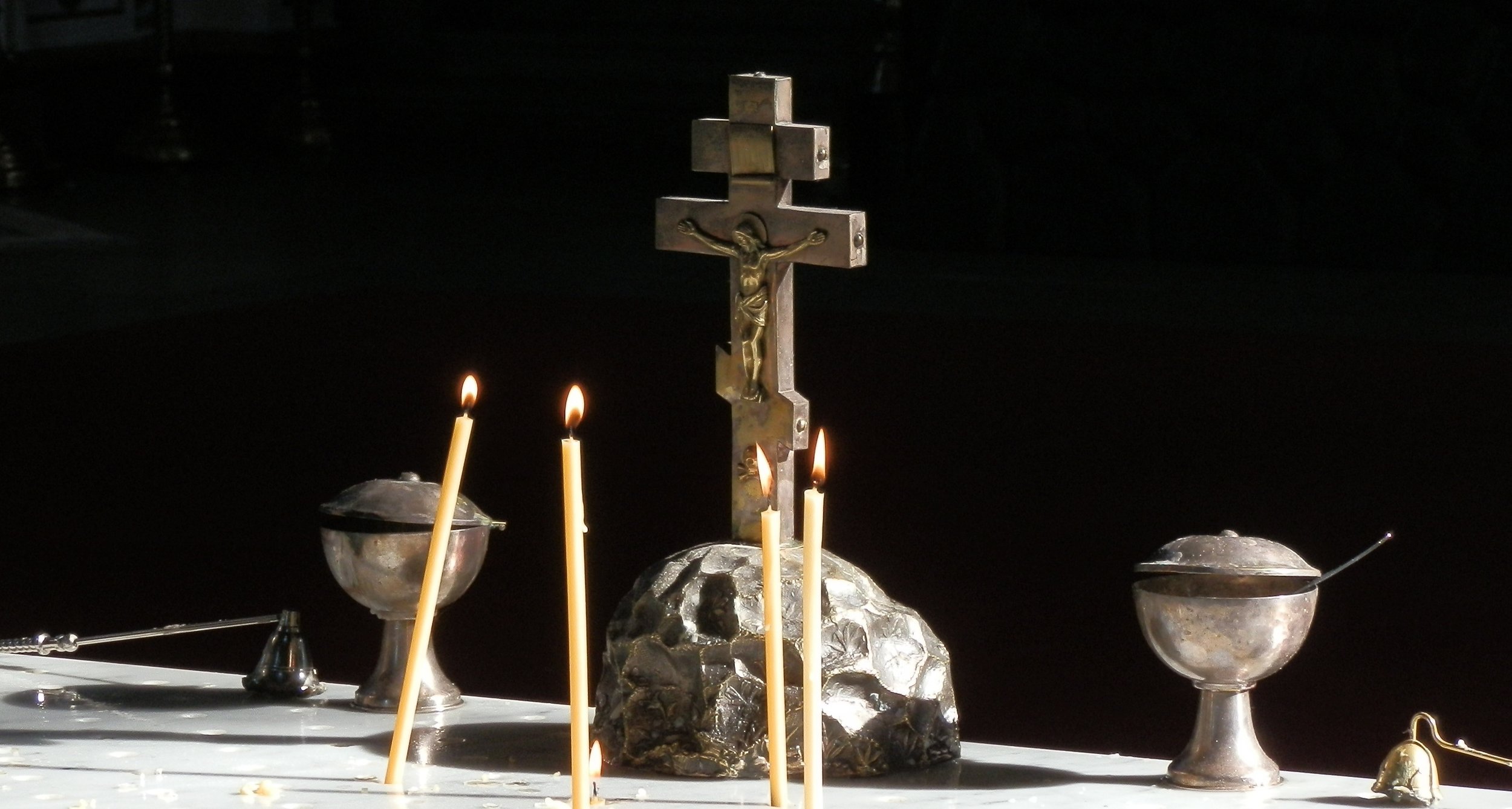Healing Atonement
Justin Martyr (c.100 - c.165 AD)
An old clay oil lamp from Nazareth, Israel. Photo credit: Olivia Armstrong.
Messages and Essays on Justin Martyr of Rome
Medical Substitutionary Atonement in Justin Martyr
An introduction to Justin Martyr and his theology of atonement. This is a small part of the larger essay, Penal Substitution vs. Medical Substitution: A Historical Comparison, which is an analysis of the atonement theology ("medical substitution") of early church theologians, including Ignatius of Antioch, Irenaeus of Lyons, the Odes of Solomon, Justin Martyr of Rome, Melito of Sardis, Tertullian of Carthage, Methodius of Olympus, Athanasius of Alexandria (paper in progress to include later theologians, bishops, and councils.
The Writings of Justin Martyr
Justin Martyr, First Apology chapter 32, paragraph 7 uses a healing and medical motif when he says "For this washing His robe in the blood of the grape was predictive of the passion He was to endure, cleansing by His blood those who believe in Him"
Justin Martyr, Second Apology chapter 13, paragraph 4 says "For next to God, we worship and love the Word who is from the unbegotten and ineffable God, since also He became man for our sakes, that becoming a partaker of our sufferings, He might also bring us healing."
Justin Martyr, Dialogue with Trypho the Jew chapter 41 says "And the offering of fine flour, sirs, which was prescribed to be presented on behalf of those purified from leprosy, was a type of the bread of the Eucharist, the celebration of which our Lord Jesus Christ prescribed, in remembrance of the suffering which He endured on behalf of those who are purified in soul from all iniquity, in order that we may at the same time thank God for having created the world, with all things therein, for the sake of man, and for delivering us from the evil in which we were, and for utterly overthrowing principalities and powers by Him who suffered according to His will. Hence God speaks by the mouth of Malachi, one of the twelve [prophets], as I said before, about the sacrifices at that time presented by you: 'I have no pleasure in you, says the Lord; and I will not accept your sacrifices at your hands: for, from the rising of the sun unto the going down of the same, My name has been glorified among the Gentiles, and in every place incense is offered to My name, and a pure offering: for My name is great among the Gentiles, says the Lord: but you profane it.' [Malachi 1:10-12] [So] He then speaks of those Gentiles, namely us, who in every place offer sacrifices to Him, i.e., the bread of the Eucharist, and also the cup of the Eucharist, affirming both that we glorify His name, and that you profane [it]. The command of circumcision, again, bidding [them] always circumcise the children on the eighth day, was a type of the true circumcision, by which we are circumcised from deceit and iniquity through Him who rose from the dead on the first day after the Sabbath, [namely through] our Lord Jesus Christ. For the first day after the Sabbath, remaining the first of all the days, is called, however, the eighth, according to the number of all the days of the cycle, and [yet] remains the first." The coordination of physical circumcision on the 8th day with the resurrection on the 8th day signifies the spiritual circumcision and cleansing of the humanity of Jesus via his death."
Justin Martyr, Dialogue with Trypho the Jew chapter 137 says "Say no evil thing, my brothers, against Him that was crucified, and treat not scornfully the stripes wherewith all may be healed, even as we are healed. For it will be well if, persuaded by the Scriptures, you are circumcised from hard-heartedness: not that circumcision which you have from the tenets that are put into you; for that was given for a sign, and not for a work of righteousness, as the Scriptures compel you [to admit]."
Sources of Atonement Theology
These resources explore the foundation of “Medical Substitution” as the best understanding of the Bible, and the original understanding of the church. There are also links to books, web articles, etc. from representatives of the three broad Christian traditions.





